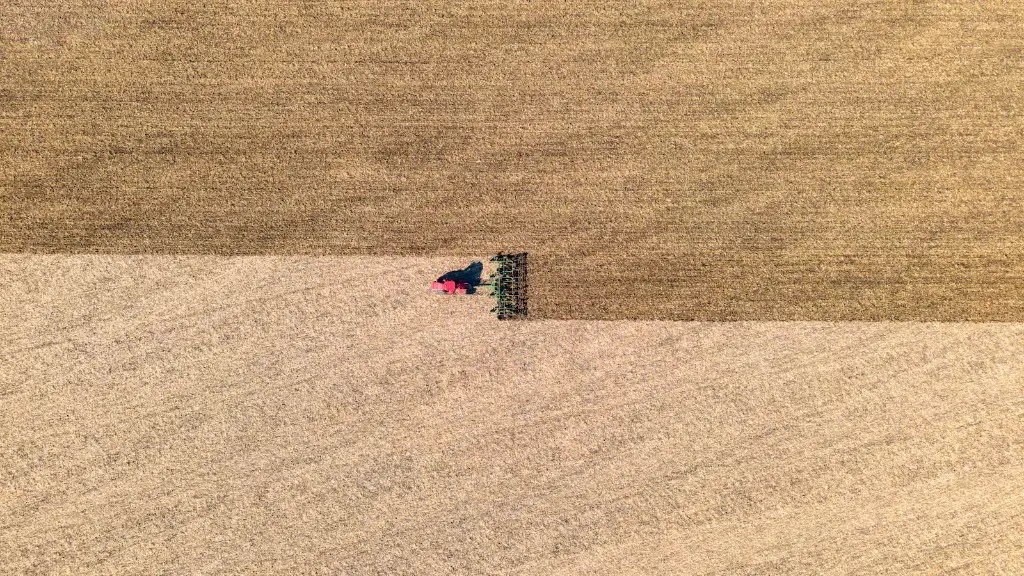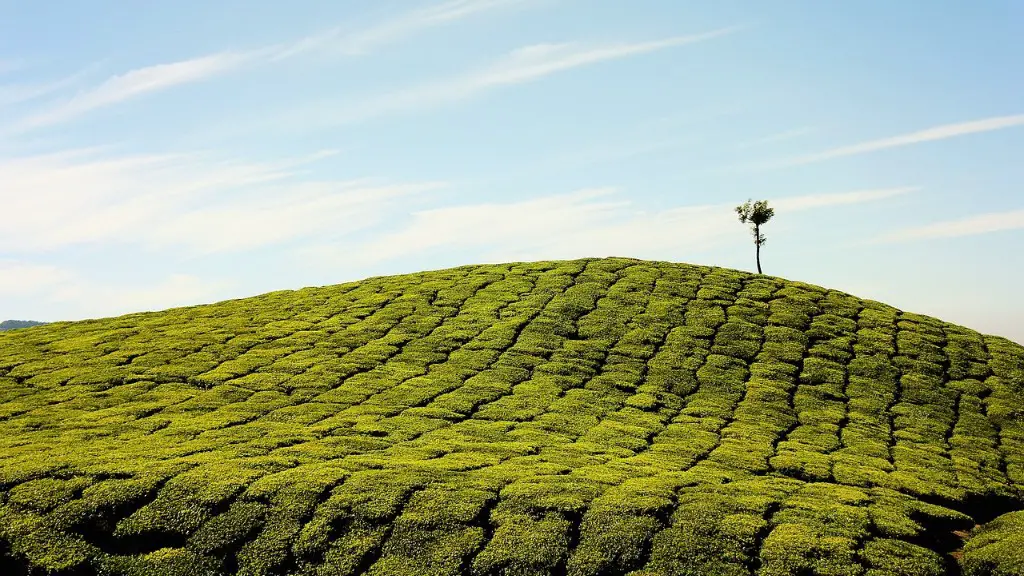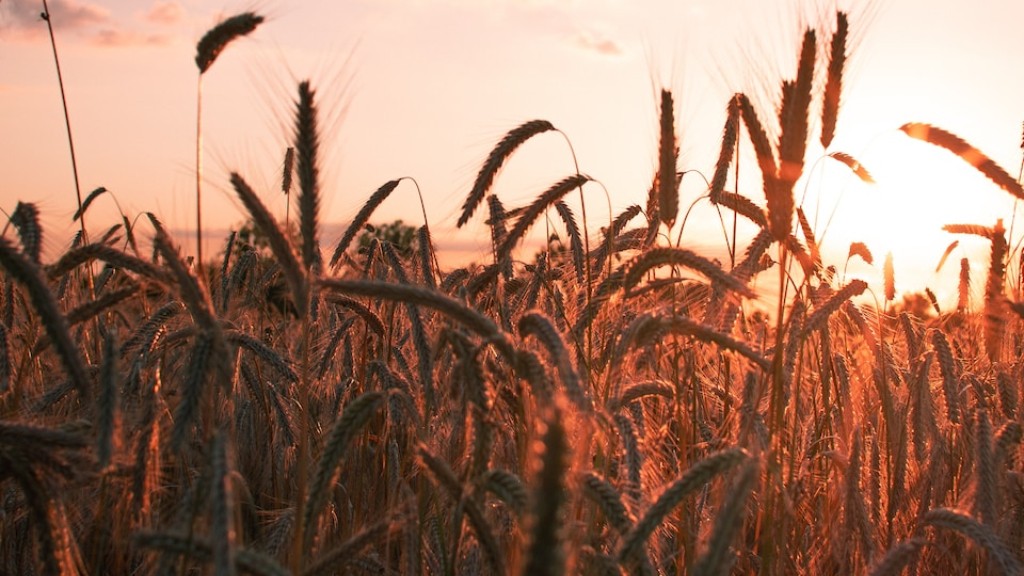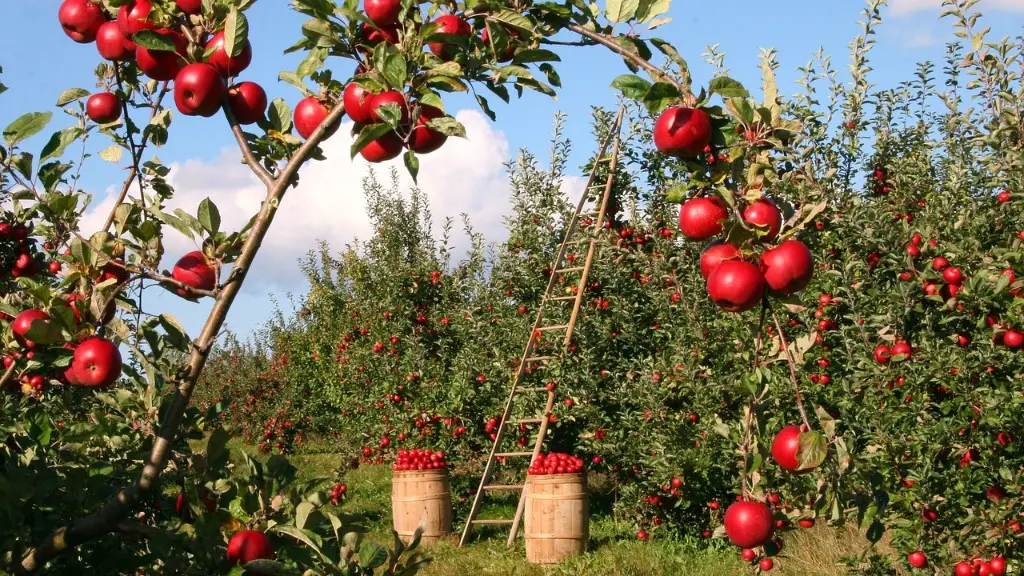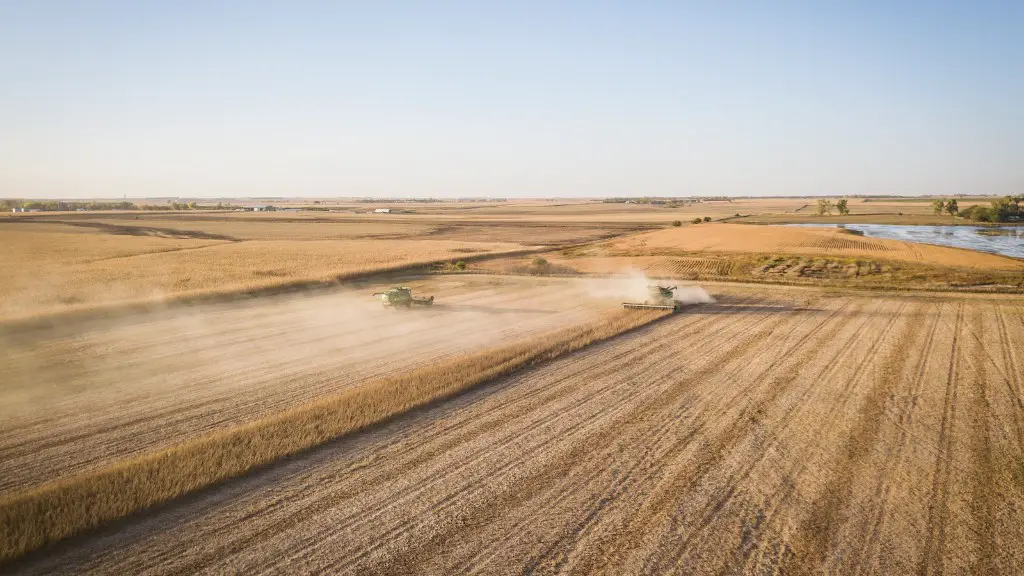The debate over whether agriculture has been the worst mistake in human history is millennial in nature. Its prevalence hasn’t dwindled with the passing of time, and even now experts are debating whether pre-agricultural societies lived healthier, more productive lives than those who began relying on domesticated crops and livestock. There is no single answer, however, as factors such as gender roles, land scarcity, and disease outbreaks must all be considered to form a complete picture. Agriculture is, of course, not without benefits, and it is important to recognize that there may be both positive and negative aspects to any form of subsistence.
Proponents of the opinion that agriculture was a mistake often cite that some early agrarian societies were less physically fit than their hunters and gatherers counterparts. This is due to the fact that farming was far more labor intensive and required longer workdays to meet the necessary quotas. Furthermore, civilizations who had become dependent on agricultural production were more vulnerable to environmental disasters such as flooding and droughts, leaving them without food and potentially forcing them to move.
On the other hand, farming enabled for a more predictable way of obtaining food, which in turn allowed hunter-gatherer populations to decrease and societies to become larger. This allowed for the emergence of different types of art, trade, and politics, as well as for the development of sophisticated urban cultures. These cities then enabled for advances in medicine, art, science and technology, and other aspects of life. Furthermore, being able to produce more food than was immediately necessary allowed early societies to have a reliable way to store food for future consumption.
Whether or not agriculture has been the worst mistake humans have made is impossible to answer with certainty. There are too many factors to consider and the truth of the matter heavily depends on the cultural and environmental context in which it is practiced. While some hunter-gatherer societies may have led healthier and more fulfilling lives than their agrarian counterparts, there is no denying that the development of agriculture was instrumental in the emergence of complex civilizations.
Effects of Agriculture on Gender Roles
Agriculture has had a profound effect on gender roles and power dynamics throughout human history. One of the most noticeable changes was the move from the more egalitarian hunter-gatherer societies to more hierarchical and distinctly gendered agrarian communities. In these societies, men and women had distinct duties, with men typically managing work in the fields and women having the responsibility for food preparation, childcare, and other domestic tasks. This division of labor enabled for men to have greater control over production, leading to a gender power disparity in some societies.
This gender power disparity was further exacerbated by the way in which agricultural expansion increased land scarcity and led to conflicts over land ownership, control, and division of resources. In some instances, this meant that men had more access to land than women, which in turn enabled them to amass greater wealth and power. This inequality in the division of resources and labor has had a lasting impact on gender roles and has been linked to the perpetuation of patriarchy and the oppression of women throughout the centuries.
It is important to note, however, that the effects of agriculture on gender roles have varied widely throughout different civilizations and eras. In some societies, there was a large degree of gender equality and in others, a more equal division of labor. At times, women have even been able to own land, command armies, and exercise their rights and liberties in ways similar to those of men.
Overall, regardless of the gender roles that have emerged from agricultural development, the effects have been far-reaching and have had a lasting impact on the way in which society has been structured for centuries. This has had both positive and negative implications, depending on the context and period in question.
Influence of Agriculture on Trade and Economics
The emergence of agriculture has had a profound influence on markets and economics throughout the world. Agricultural production allowed for the abundance of a specific commodity, which then opened the door to the growth of trade and economies that were not previously possible in hunter-gatherer societies. This enabled for entrepreneurs and traders to enter the market and purchase goods, which then became the foundation for a more reliable system of currency.
The abundance of goods also allowed for the introduction of new forms of taxation as well as government regulations. These regulations had a direct impact on the way in which trade was conducted and enabled governments to control the production of goods, the collection of taxes, and the distribution of wealth. This allowed for the emergence of powerful ruling classes and the hierarchical structures that have become so integral to modern economies.
Furthermore, the stability and predictability of agricultural production enabled for the creation of more technically impressive and extensive transportation systems. This allowed for goods to travel vast distances and for new technologies to be developed. This, in turn, led to the formation of a global economy, in which goods and services could be exchanged and traded between distant nations on an unprecedented scale.
Overall, there can be no doubt that the emergence of agriculture was instrumental in the development of the modern trade and economy. It enabled for new forms of commerce to come into existence, it sparked the growth of powerful ruling classes, and it allowed for the creation of new technologies and extensive transportation systems. These developments have had far-reaching implications for the way in which the world does business.
Environmental Impact of Pre-Agricultural Societies
When considering whether or not agriculture was the worst mistake in human history, it is important to also take into account the impact that pre-agricultural societies had on the environment. Hunter-gatherer societies heavily relied on hunting as a means of obtaining food, which had a profound impact on the ecology of their regions. The widespread hunting of large animals such as mammoths and bison caused their demise, as well as that of other species who were preyed upon such as deer and elk.
In addition, hunter-gatherers would often set controlled fires which were used to clear areas and increase their production of food. This had a devastating impact on the flora and fauna in the regions, as burning large areas of land would change the ecosystem and the wildlife who depends on it.
Finally, pre-agricultural societies had a limited understanding of waste. As such, they often utilized most of the resources available to them without considering the consequences. This led to soil degradation and the overpopulation of certain species, as well as water and air pollution and the destruction of habitat.
Overall, it is clear that pre-agricultural societies have had a negative impact on the environment, and, in some cases, this impact has been devastating. This highlights the importance of managing resources responsibly in order to ensure that our current and future generations are able to live in a healthy and sustainable environment.
Health Implications of Agriculture
Agriculture has had a significant impact on global health, as diets have changed dramatically throughout human history. In pre-agricultural societies, diets consisted mostly of plant-based foods, while in agrarian communities the majority of the food consisted of grains and other cereals. This had an effect on nutrition, as the new diets were often deficient in vitamins and minerals.
In addition to this, the increased susceptibility to environmental disasters in early agrarian societies led to food insecurity and malnutrition, which had multiple implications for health. This included the increase of infectious diseases such as smallpox and influenza and the emergence of new ailments that were caused by the shortage of food.
The introduction of domesticated animals also had an influence on human health, as it altered the way in which diseases were transmitted. This led to the emergence of diseases such as tuberculosis and measles, both of which had devastating effects on pre-agricultural populations, who had no immunity to these illnesses.
Overall, the development of agriculture has had both positive and negative implications for global health. While agriculture has enabled for the emergence of cities and the growth of economies and trade, it has also had detrimental effects on health due to dietary changes, food insecurity, and disease outbreaks.
Agricultural Development and Climate Change
Agriculture has played a key role in the evolution of climate change over the past few centuries. The development of farming and industrialization has led to unsustainable land use practices, the overutilization of natural resources, and the release of greenhouse gases into the atmosphere. This has had a major impact on the global climate, as rising temperatures, melting ice caps, and extreme weather events have become commonplace.
Agriculture is also to blame for a wide range of environmental issues, such as water and air pollution, deforestation, and erosion. These activities have had a drastic effect on ecosystems and have caused the extinction of a number of species. Furthermore, agricultural activities are responsible for the depletion of natural resources such as water and soil, which has had consequences for global food security.
Finally, it is important to recognize that agricultural practices can have a detrimental effect on human health as well. This includes an increase in vector borne diseases as well as respiratory illnesses as a result of air pollution. Additionally, climate change has had an effect on agricultural lands, leading to shortages in food production and a decrease in availability of certain crops.
Overall, it is clear that agricultural activities are to blame for a multitude of environmental issues and that these activities have had a significant impact on global climate change. It is therefore essential that sustainable and responsible farming practices be adopted in order to ensure a healthy and equitable future for future generations.
